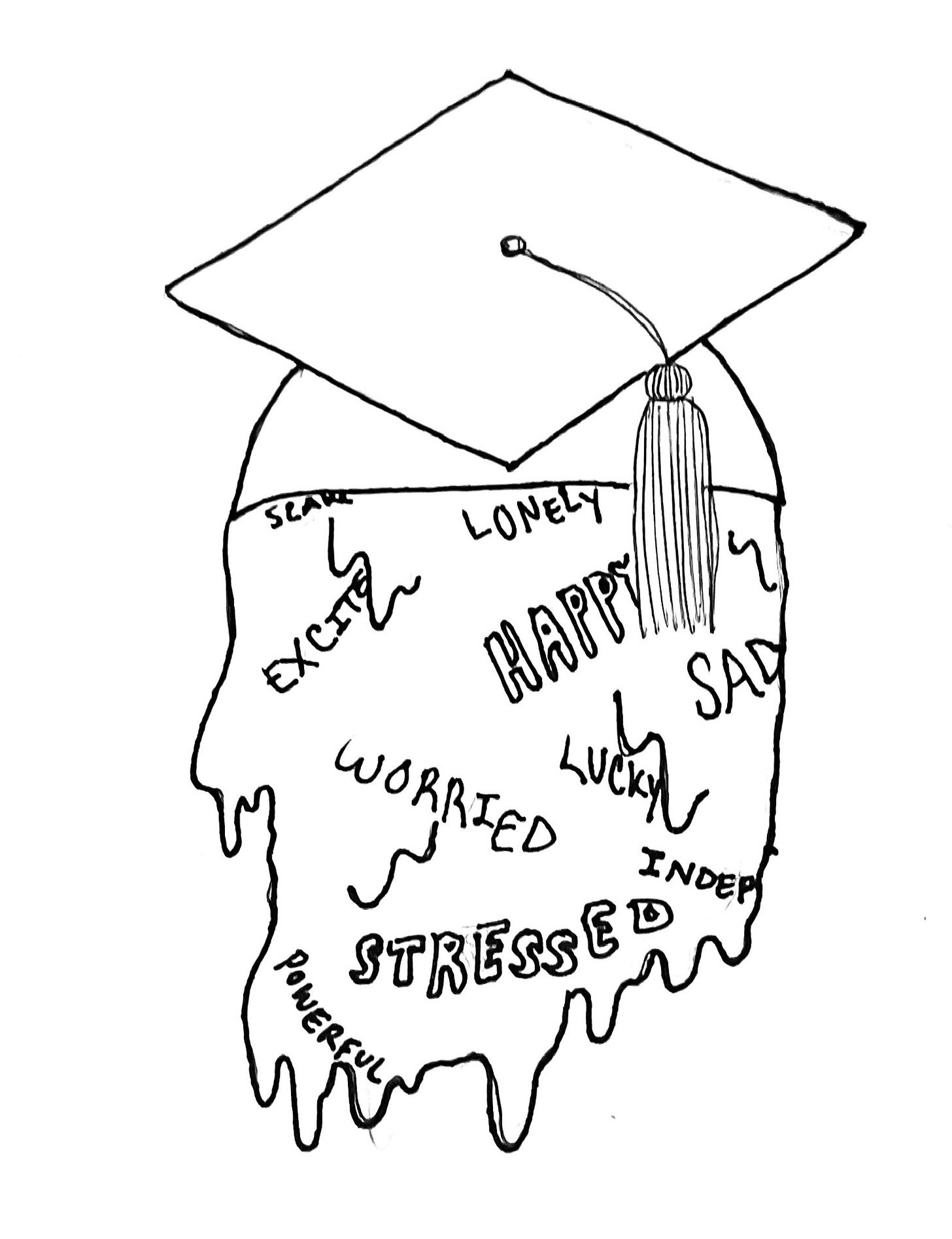“They should cancel every final.” I said to the school librarian, leaning against the front of the circulation desk.“They should cancel them, just because of the state of the world.” She laughed, “Yeah, seriously”.
June is finals season. Between the individual ones given for each class to standardized state testing, most of the month is spent studying for or taking exams. Sometimes it’s rewarding. Me and two friends sat at a table last week and studied physics for about four hours, just reviewing and relearning. The next day, when I was handed the test, there was a problem on it that my friend had just taught me how to do, after spending the whole semester confused on that topic. I’m pretty sure I got that answer right.
Other times, though, it feels as if we’re cramming to learn things that will never matter, all the while watching the world fall apart around us. Study sinewaves, study kinetic energy, learn how to turn cos(-𝜋/4) into √2/2, and read about kids in your own city, at high schools you know well, getting detained by ICE. There's a protest one night that you should go to, that’s more important than your Spanish final, but you can’t, because you still aren’t sure how cláusula adverbiales work.
We’ve built up this expectation that, while you’re allowed to care for others and the world around you, you shouldn’t care enough to interrupt daily life. This seems to be a rule adults follow, but I think it manifests differently for teens.
As little kids, most of us are taught about the importance of sharing, of working together in an amicable way with our classmates. We’re told not to hit each other, that it’s never okay to use our bodies to hurt the people around us. Instead, we have to use our words to express how we feel. That’s expected, that part of a child’s education. It’s what’s standard, and even if it’s not taught in a classroom, parents are supposed to teach that to their children. At the very least, kids aren’t supposed to be biting people they don’t like.
Once you’re older, as your perspective of the world widens to include people you don’t know, that education is supposed to go away. Biting each other still isn’t allowed, but going to war is something that happens, something that must be accepted. Retaliation is necessary, there are just some things that are more complicated than ‘use your words’.
There’s an incredible dissonance between what you’re taught in elementary and pre-school and what, when you get to high school, you are told to consider as normal. Maybe that’s what gives teenagers so much freshness, so many new ways of seeing things. We haven’t fully ‘gotten over’ the idea that hurting each other in any way is wrong, but we also see the world’s nuances. The idea of following the status quo while the world is burning hasn’t quite sunk in as the ‘normal’ thing to do.
I don’t know what else I can say, what new thing I can contribute to this ongoing conversation around hypernormalization. We’re stuck between this fear of doing badly in school, not getting good grades, not getting into a good college, and focusing on the world around us. I guess all there is is compassion. Keep being compassionate, keep feeling, keep hurting. And keep asking questions. Do research, invest time in learning about different world events. Not to fall into a spiral of doom, but to try and find your place in all of it. It’s soppy and very inconcrete advice, but just hold on to your compassion and don’t let it go. The caring we are taught to show towards others when we are small holds true always, even when so many systems are telling us to turn away.
But anyway, I should probably get back to studying.
***Lydia Bach is a 15 year old writer and student living in New York City. In her free time, you can find Lydia singing or lying in bed worrying about the state of the world.***






I know all of the busy NYC teens feel so seen right now. Thanks for talking about it:)
Oh, Lydia. What a wonderful essay. Thoughtful and accurate. You are right.